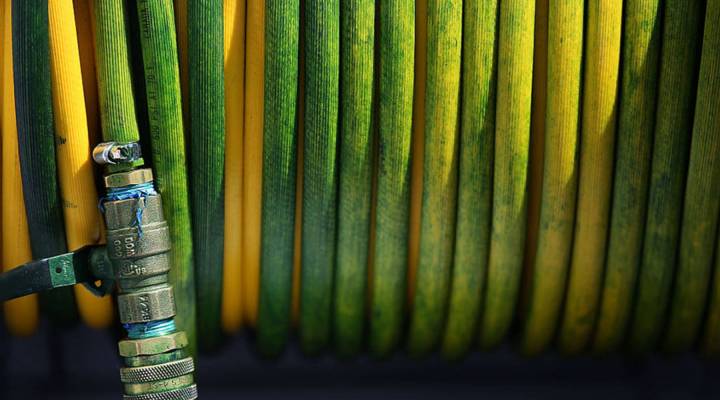
In her new book, “The Secret Lives of Color,” Kassia St. Clair chronicles the origin stories of a rainbow of colors, dyes and shades. In this occasional series, we’ll highlight some of the hues featured in her book and the unusual stories behind them. Today, the story of green and how it went from a color symbolizing the unnatural mixing of yellow and blue to a color we now associate with nature. Also, some bonus content on the true hue of avocado green.
Green has a bit of a tricky history. Now we think of it in very positive terms. For most people, it will bring to mind environmental causes and the outdoors and health. But if you could go back in time and ask a medieval person on the street about the color green, they might be a bit more suspicious.
Part of that is because there aren’t many natural green pigments that are bright and vibrant. So to get a strong and vivid shade of green, you had to first dye the cloth yellow, then dye it blue. To the medieval mind, this was highly suspect. They took ideas of pigment purity very seriously. It gave green a connotation of falsity or being against nature — completely the opposite of how we think about green today.
Greens have been popular, especially in the 1970s when avocado green was one of the most fashionable colors of the decade. And when you say “avocado green,” most people can immediately picture the shade, probably accompanied by harvest gold and the rusty browns that unfortunately decorated every 1970s home.
However, in a hundred years from now, assuming avocados still exist, pinning down this particular hue could be a bit confusing to people living in the year 2118. There are several different greens associated with an actual avocado — the dark green of its skin, the clay green outer flesh and the butter green shade closer to the pit. Real year 2100 problems, right?
This segment was engineered and scored by Ben Tolliday.
| An impossible race, and why Italians love this particular shade of red |
| How the search for a malaria cure led to the color mauve |
There’s a lot happening in the world. Through it all, Marketplace is here for you.
You rely on Marketplace to break down the world’s events and tell you how it affects you in a fact-based, approachable way. We rely on your financial support to keep making that possible.
Your donation today powers the independent journalism that you rely on. For just $5/month, you can help sustain Marketplace so we can keep reporting on the things that matter to you.












